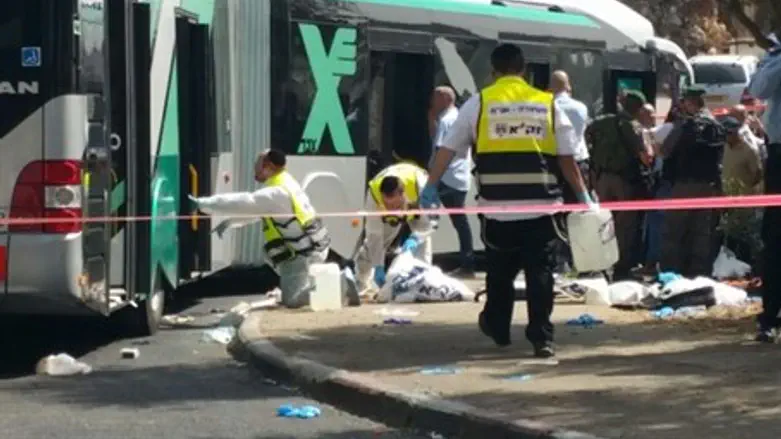
Israel's hotlines for psychological assistance have become overwhelmed in recent weeks, as Israelis suffer under the constant fear of new terror attacks.
"We're collapsing under the burden, we have an increase of more than 100% in calls," Gila Sela, director of the Natal hotline for support and psychological assistance to victims of national trauma, stated to Maariv Monday. "Every volunteer network we have is active and we even had to form an emergency team."
All of Israel appears to be turning to hotlines, she noted - and parents, soldiers, young and old, and people of all religious sectors have called Natal over the past months.
"There are those who call just as the attacks happen, when it catches them at that moment, they express their helplessness and fear," she reflected. "It is not just witnesses who were at the scene but people who were exposed to pictures and videos of attacks."
A great deal of callers are suffering from post-traumatic stress.
"Quite a few Israelis who have experienced trauma during attacks in the past, during the first Intifada and the second, call us," she said.
That said, "young people during this time who were children or were not born at all mainly appeal to us," she said, because they are less equipped to deal emotionally with the onslaught of terror.
It also turns out that one of the populations most in need these days are soldiers in the reserves and the regular army.
"We have spoken to them throughout the past year since [Operation] Protective Edge, and now we are even more in touch with them," Sela said. "These are soldiers who somehow managed to get back to normal after Protective Edge, [but] the wave of terror raises concerns and memories from them; they are afraid they will be called up again. Many soldiers are already waiting for their Tzav 8 (order to report for duty in times of war or emergency - ed.) and for escalation."
Sela explained that professionals empathize with callers, and, most of all, attempt to prevent them from panicking. The great risk, she said, is Post-Traumatic Stress Disorder (PTSD); she estimated that while some 80% of people will eventually find equilibrium again after the terrorism stops, 20% of callers will experience PTSD for weeks to months afterward.
And those rates might increase, as anxiety is higher than in the past. Natal's community director, Yotam Dagan, noted that while "the casualty rate does not even approach the levels of the Second Intifada," it is "much harder" on the general public.
"The problem is that the threat is from within - from our integrated cities, from where we go shopping," he said.
